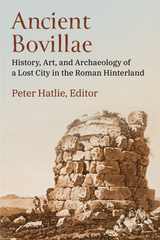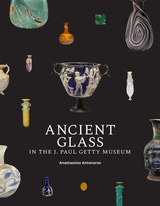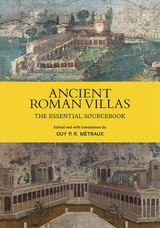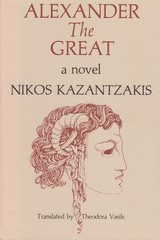
Nikos Kazantzakis is no stranger to the heroes of Greek antiquity. In this historical novel based on the life of Alexander the Great, Kazantzakis has drawn on both the rich tradition of Greek legend and the documented manuscripts from the archives of history to recreate an Alexander in all his many-faceted images—Alexander the god; Alexander the descendant of Heracles performing the twelve labors; Alexander the mystic, the daring visionary destined to carry out a divine mission; Alexander the flesh-and-blood mortal who, on occasion, is not above the common soldier’s brawling and drinking.
The novel, which resists the temptation to portray Alexander in the mantle of purely romantic legend, covers his life from age fifteen to his death at age thirty-two. It opens with Alexander’s first exploit, the taming of the horse, Bucephalas, and is seen in great part through the eyes of his young neighbor who eventually becomes an officer in his army and follows him on his campaign to conquer the world.
The book, which was written primarily as an educational adjunct for young readers, is intended for the adult mind as well, and like the legends of old, is entertaining as well as instructive for readers of all ages. It was originally published in Greece in serial form in 1940, and was republished in a complete volume in 1979.
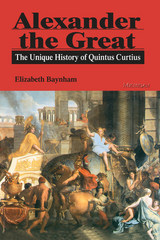
The reign and personality of Alexander the Great---one of the most romantic and powerful kings in history---have remained a source of fascination from antiquity to the present. But because the ancient information surrounding the conqueror is rich, contradictory, and complex, every historian of this near-mythical ruler-whether ancient or modern-invariably creates his or her own Alexander.
The unique work of one such ancient historian, Quintus Curtius, is the subject of Elizabeth Baynham's book. She mines Curtius' study of power for his contemporary perspective, historical methodology, and his portrait of the famous king and presents us with a brilliant, multifaceted study of this unique account regarding one of the most fascinating rulers in history.
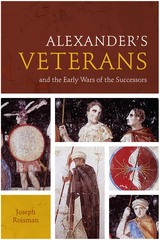
This first focused analysis of veterans’ experiences in ancient Greece offers a fresh, “bottom-up” perspective on important military and political aspects of early Hellenistic history.
Runner-up, PROSE Award, Classics and Ancient History, 2013
From antiquity until now, most writers who have chronicled the events following the death of Alexander the Great have viewed this history through the careers, ambitions, and perspectives of Alexander’s elite successors. Few historians have probed the experiences and attitudes of the ordinary soldiers who followed Alexander on his campaigns and who were divided among his successors as they fought for control of his empire after his death. Yet the veterans played an important role in helping to shape the character and contours of the Hellenistic world.
This pathfinding book offers the first in-depth investigation of the Macedonian veterans’ experience during a crucial turning point in Greek history (323–316 BCE). Joseph Roisman discusses the military, social, and political circumstances that shaped the history of Alexander’s veterans, giving special attention to issues such as the soldiers’ conduct on and off the battlefield, the army assemblies, the volatile relationship between the troops and their generals, and other related themes, all from the perspective of the rank-and-file. Roisman also reexamines the biases of the ancient sources and how they affected ancient and modern depictions of Alexander’s veterans, as well as Alexander’s conflicts with his army, the veterans’ motives and goals, and their political contributions to Hellenistic history. He pays special attention to the Silver Shields, a group of Macedonian veterans famous for their invincibility and martial prowess, and assesses whether or not they deserved their formidable reputation.

On the march to greatness.
Arrian (Flavius Arrianus), of the period ca. AD 95–175, was a Greek historian and philosopher of Nicomedia in Bithynia. Both a Roman and an Athenian citizen, he was governor of the Roman province of Cappadocia 132–137, and repelled an invasion of the Alani in 134. He retired then to Athens (where he was archon in 148–149) and later to Nicomedia.
Arrian’s Anabasis of Alexander in seven books is the best account we have of Alexander’s adult life. Indica (a description of India and of Nearchus’ voyage therefrom) was to be a supplement.
A student of Epictetus, Arrian took notes at his lectures and published them (in eight books, of which we have four, The Discourses) and also the Encheiridion or Manual of Epictetus. Both works are available in the Loeb edition of Epictetus (LCL 131, 218).
The Loeb Classical Library edition of Arrian is in two volumes.

On the march to greatness.
Arrian (Flavius Arrianus), of the period ca. AD 95–175, was a Greek historian and philosopher of Nicomedia in Bithynia. Both a Roman and an Athenian citizen, he was governor of the Roman province of Cappadocia 132–137, and repelled an invasion of the Alani in 134. He retired then to Athens (where he was archon in 148–149) and later to Nicomedia.
Arrian’s Anabasis of Alexander in seven books is the best account we have of Alexander’s adult life. Indica (a description of India and of Nearchus’ voyage therefrom) was to be a supplement.
A student of Epictetus, Arrian took notes at his lectures and published them (in eight books, of which we have four, The Discourses) and also the Encheiridion or Manual of Epictetus. Both works are available in the Loeb edition of Epictetus (LCL 131, 218).
The Loeb Classical Library edition of Arrian is in two volumes.
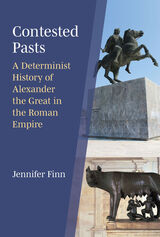
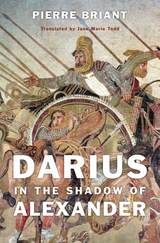
The last of Cyrus the Great’s dynastic inheritors and the legendary enemy of Alexander the Great, Darius III ruled over a Persian Empire that stretched from the Mediterranean to the Indus River. Yet, despite being the most powerful king of his time, Darius remains an obscure figure.
As Pierre Briant explains in the first book ever devoted to the historical memory of Darius III, the little that is known of him comes primarily from Greek and Roman sources, which often present him in an unflattering light, as a decadent Oriental who lacked the masculine virtues of his Western adversaries. Influenced by the Alexander Romance as they are, even the medieval Persian sources are not free of harsh prejudices against the king Dārā, whom they deemed deficient in the traditional kingly virtues. Ancient Classical accounts construct a man who is in every respect Alexander’s opposite—feeble-minded, militarily inept, addicted to pleasure, and vain. When Darius’s wife and children are captured by Alexander’s forces at the Battle of Issos, Darius is ready to ransom his entire kingdom to save them—a devoted husband and father, perhaps, but a weak king.
While Darius seems doomed to be a footnote in the chronicle of Alexander’s conquests, in one respect it is Darius who has the last laugh. For after Darius’s defeat in 331 BCE, Alexander is described by historians as becoming ever more like his vanquished opponent: a Darius-like sybarite prone to unmanly excess.
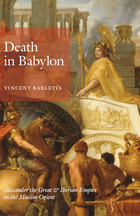
Though Alexander the Great lived more than seventeen centuries before the onset of Iberian expansion into Muslim Africa and Asia, he loomed large in the literature of late medieval and early modern Portugal and Spain. Exploring little-studied chronicles, chivalric romances, novels, travelogues, and crypto-Muslim texts, Vincent Barletta shows that the story of Alexander not only sowed the seeds of Iberian empire but foreshadowed the decline of Portuguese and Spanish influence in the centuries to come.
Death in Babylon depicts Alexander as a complex symbol of Western domination, immortality, dissolution, heroism, villainy, and death. But Barletta also shows that texts ostensibly celebrating the conqueror were haunted by failure. Examining literary and historical works in Aljamiado, Castilian, Catalan, Greek, Latin, and Portuguese, Death in Babylon develops a view of empire and modernity informed by the ethical metaphysics of French phenomenologist Emmanuel Levinas. A novel contribution to the literature of empire building, Death in Babylon provides a frame for the deep mortal anxiety that has infused and given shape to the spread of imperial Europe from its very beginning.

A condensed Roman history of non-Roman civilizations.
To Justin (Marcus Junian(i)us Justinus), otherwise unknown, is attributed our abbreviated version of the lost Philippic History by (Gnaeus?) Pompeius Trogus, a massive account, in forty-four books, of the non-Roman world and its civilizations, from mythic beginnings through Alexander the Great, the Hellenistic kingdoms, and Parthia. Trogus’ work thus complemented the monumental history of Rome by his Augustan contemporary, Livy, and in high style traced similar moral themes: rulers and states that lack such virtues as moderation, justice, and piety bring harm or ruin on themselves, and often on their realms as well.
Justin, working at some time in the late second to the late fourth century AD, did not produce a strict epitome or summary but what he calls “a brief anthology”: not unlike Florus (LCL 231), who used Livy’s history as the primary source for a brief but original military history of Rome, Justin freely selected what suited his own purposes, favoring “what makes pleasurable reading or serves to provide a moral,” with an eye to the kind of emotive anecdotes that might be useful to orators. He also blends Trogus’ language with borrowings from literature of subsequent generations. Justin’s anthology became one of the most widely read and influential books in the Middle Ages and Renaissance, indeed the main authority on world history other than Roman, surviving in more than 200 manuscripts.
Also included in this edition are the “Prologues,” summaries of Trogus by some other compiler, which preserve many details that Justin omits or reports differently.

A condensed Roman history of non-Roman civilizations.
To Justin (Marcus Junian(i)us Justinus), otherwise unknown, is attributed our abbreviated version of the lost Philippic History by (Gnaeus?) Pompeius Trogus, a massive account, in forty-four books, of the non-Roman world and its civilizations, from mythic beginnings through Alexander the Great, the Hellenistic kingdoms, and Parthia. Trogus’ work thus complemented the monumental history of Rome by his Augustan contemporary, Livy, and in high style traced similar moral themes: rulers and states that lack such virtues as moderation, justice, and piety bring harm or ruin on themselves, and often on their realms as well.
Justin, working at some time in the late second to the late fourth century AD, did not produce a strict epitome or summary but what he calls “a brief anthology”: not unlike Florus (LCL 231), who used Livy’s history as the primary source for a brief but original military history of Rome, Justin freely selected what suited his own purposes, favoring “what makes pleasurable reading or serves to provide a moral,” with an eye to the kind of emotive anecdotes that might be useful to orators. He also blends Trogus’ language with borrowings from literature of subsequent generations. Justin’s anthology became one of the most widely read and influential books in the Middle Ages and Renaissance, indeed the main authority on world history other than Roman, surviving in more than 200 manuscripts.
Also included in this edition are the “Prologues,” summaries of Trogus by some other compiler, which preserve many details that Justin omits or reports differently.
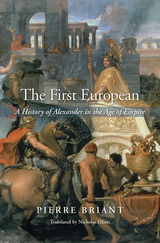
The exploits of Alexander the Great were so remarkable that for centuries after his death the Macedonian ruler seemed a figure more of legend than of history. Thinkers of the European Enlightenment, searching for ancient models to understand contemporary affairs, were the first to critically interpret Alexander’s achievements. As Pierre Briant shows, in the minds of eighteenth-century intellectuals and philosophes, Alexander was the first European: a successful creator of empire who opened the door to new sources of trade and scientific knowledge, and an enlightened leader who brought the fruits of Western civilization to an oppressed and backward “Orient.”
In France, Scotland, England, and Germany, Alexander the Great became an important point of reference in discourses from philosophy and history to political economy and geography. Voltaire, Montesquieu, and Robertson asked what lessons Alexander’s empire-building had to teach modern Europeans. They saw the ancient Macedonian as the embodiment of the rational and benevolent Western ruler, a historical model to be emulated as Western powers accelerated their colonial expansion into Asia, India, and the Middle East.
For a Europe that had to contend with the formidable Ottoman Empire, Alexander provided an important precedent as the conqueror who had brought great tyrants of the “Orient” to heel. As The First European makes clear, in the minds of Europe’s leading thinkers, Alexander was not an aggressive militarist but a civilizing force whose conquests revitalized Asian lands that had lain stagnant for centuries under the lash of despotic rulers.
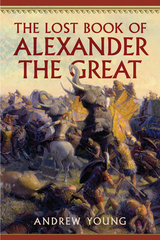
Alexander the Great is well known as one of the first great empire builders of the ancient world. Among those fellow Macedonian officers who accompanied Alexander in his epic conquests from Greece to India was Ptolemy Lagides. Ptolemy served alongside Alexander from the Persian defeat at the Battle of Issus in modern-day Turkey and the journey to find the oracle that proclaimed Alexander to be Zeus incarnate, to the Battle of the Hydaspes River in 326 BC that opened India to the West. Following Alexander’s death, Ptolemy gained control of Egypt where he founded the dynasty in his name, created the great library of Alexandria, and was patron of the mathematician Euclid. Sometime during his rule in Egypt, Ptolemy wrote a history of Alexander’s conquests. Although it is probable that Ptolemy enhanced his own importance, sources indicate that it was regarded as an accurate and even-handed account of the campaigns of Alexander. However, Ptolemy’s book was lost—perhaps with the destruction of the library he founded—and not even an original fragment has survived. His book, however, was acknowledged as a primary source of information for later Roman historians.
In The Lost Book of Alexander the Great, Andrew Young explores the world of ancient writings about the Macedonian leader in order to determine whether any of Ptolemy’s writings can be recovered. Inspired by Stephen Greenblatt’s distinguished biography of Shakespeare, Will in the World, and written for the general reader, the author uses literary forensics to suggest which parts of later books about Alexander the Great, most notably the account by Arrian of Nicomedia, might be the words of Ptolemy. In addition to separating later Roman sensibilities from the original Greek of Ptolemy, the author re-creates the famous library of Alexandria, and takes the reader along on Alexander’s conquests as closely as we can to how Ptolemy may have recounted them.
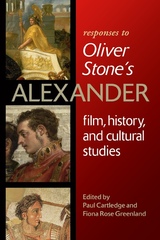
This volume brings together an intriguing mix of leading scholars in Macedonian and Greek history, Persian culture, film studies, classical literature, and archaeology—including some who were advisors for the film—and includes an afterword by Oliver Stone discussing the challenges he faced in putting Alexander’s life on the big screen. The contributors scrutinize Stone’s project from its inception and design to its production and reception, considering such questions as: Can a film about Alexander (and similar figures from history) be both entertaining and historically sound? How do the goals of screenwriters and directors differ from those of historians? How do Alexander’s personal relationships—with his mother Olympias, his wife Roxane, his lover Hephaistion, and others—affect modern perceptions of Alexander? Several of the contributors also explore reasons behind the film’s tepid response at the box office and subsequent controversies.
READERS
Browse our collection.
PUBLISHERS
See BiblioVault's publisher services.
STUDENT SERVICES
Files for college accessibility offices.
UChicago Accessibility Resources
home | accessibility | search | about | contact us
BiblioVault ® 2001 - 2025
The University of Chicago Press




